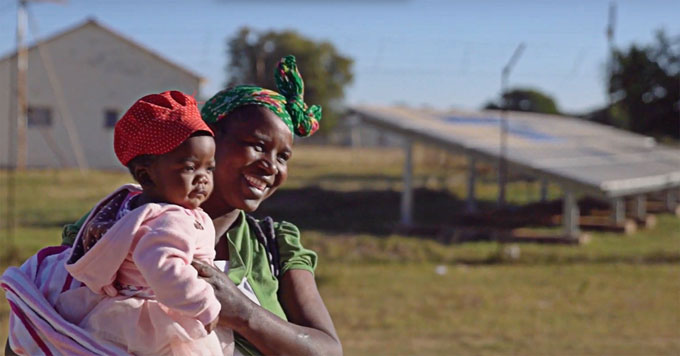Source: Solar keeps lights on at Zimbabwe clinics » Yale Climate Connections
Reliable electricity ensures safe storage of medicines and vaccines.

In Zimbabwe, electricity shortages often cause lengthy blackouts. Without power, health clinics are unable to store vaccines and other life-saving medicines properly.
Linou: “What we realized is that some of the drugs were not being kept at the right temperature and basically the health quality – the services – were at risk.”
Natalia Linou is with the U.N. Development Programme – or UNDP. The international organization works with health clinics in Africa, Asia, and elsewhere.
She says some clinics use diesel generators for back-up electricity, but that is expensive and polluting. So two years ago, in partnership with the Global Fund, her organization began installing solar systems at clinics in Zimbabwe. Now …
Linou: “We’ve got solar panels on over 400 clinics.”
They provide reliable, renewable energy. That helps ensure that doctors and nurses can safely store medicines, run life-saving machines, and access important data.
The program is expanding. UNDP has now installed solar on clinics in Zambia, Libya, Namibia, Sudan and South Sudan.
So the power of the Sun is not only helping to reduce carbon pollution, it’s helping to improve people’s health and even save lives.
COMMENTS